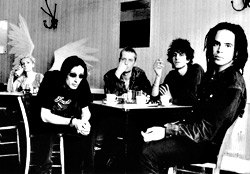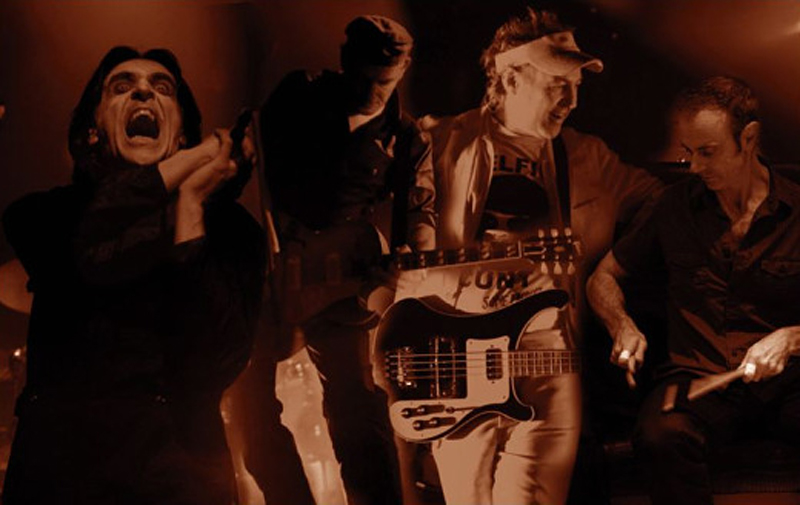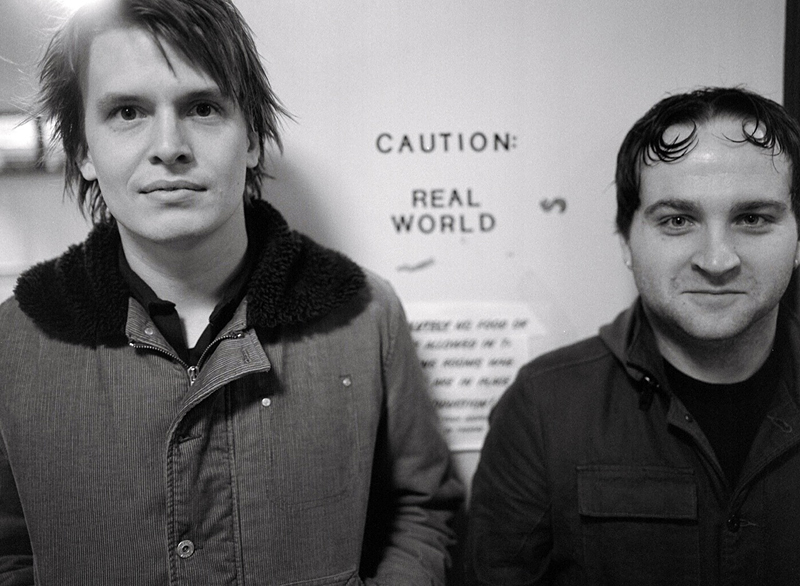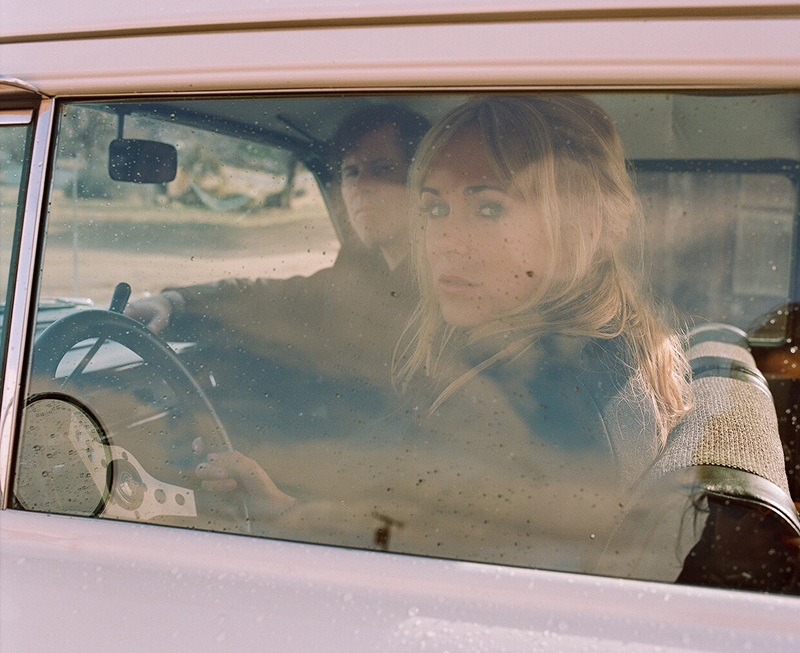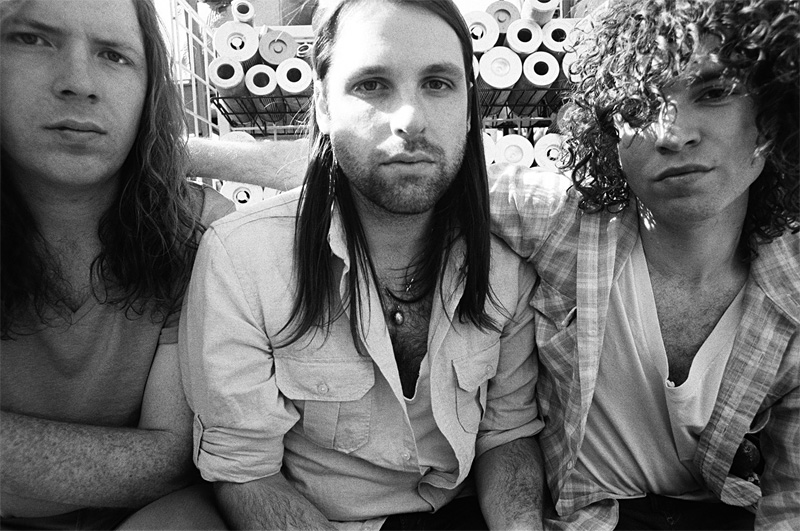Over the phone from London, Swervedriver front man Adam Franklin listens as I remind him of the last time I interviewed him. It was toward the end of 1998—the band was on the road behind that year’s 99th Dream, its fourth full-length—and, in a total fanboy move, I brought with me a set list I’d once snagged at a Swervies show in New York City for him to autograph. “Hey Mike, we’ll be back!!!” he scrawled on the tattered sheet.
“Right, well, I suppose I kept my word, then,” Franklin laughs.
Indeed he has, even if it’s taken Swervedriver nearly 10 years to make good on the promise. Freshly reunited, they’re playing shows in the United States for the first time since going on hiatus in 1999. Up to that point, the band had been exceptionally active, recording and touring relentlessly—via numerous headline outings or as support for the likes of Soundgarden and Smashing Pumpkins—despite career swings as volatile as their guitar-centric roar.
Emerging from Britain’s shoegazer scene in the early ’90s, Swervedriver possessed a sound tougher and more purposeful than most of their contemporaries—more akin to noisy American guitar bands such as the Stooges, Hüsker Dü, and Dinosaur Jr. Sure, there were scads of guitar pedals providing layers of atmosphere that wrapped around Franklin’s hazy drawl, but those trippy sonic waves rarely obscured the band’s gritty riffs and penchant for richly melodic, classic songcraft. And live, they were a beast, those beautiful, propulsive songs combining with ungodly volume.
But by ’99, burnout and a decade’s worth of bad breaks and rotten business dealings (they’d been successively signed and dropped by Creation, A&M, and Geffen, resulting in half of their albums being either delayed or prevented entirely from being released in the United States) caught up to the band, and with little fanfare its members amicably went their separate ways.
Because the four bandmates left on good terms, explains Franklin, the possibility of a reunion always remained on the table until coming to fruition last fall. “There were times when we’d all find ourselves together in the same room—somebody’s party, or a wedding or a funeral or whatever—but on those kinds of occasions we didn’t necessarily discuss the music because we weren’t there for that reason. It wasn’t like Swervedriver was hanging over us in any way, we would just hang out. And then someone would inevitably mention, like, ‘Hey, perhaps you guys should get back together,’ and every time it seemed wrong. But this time around it cropped up again, and it just seemed like the right time for everybody.”
And, as he’s quick to add, Swervedriver probably would have stayed defunct if not for a dedicated fan base keeping the band’s name alive by creating a repository of live MP3s at www.swervedriver.com, or if early champion Bob Mould (ex–Hüsker Dü), hadn’t posted a glowing entry about the band on his widely read blog. “If nobody was interested, I guess we still could have gotten together and played a tiny pub in London,” says Franklin.
Absurdly enough, all these years later Swervedriver is still battling the record industry, these days over the fact that their albums sadly remain out of print. “It’s kind of painful to walk into a record store and there’s the Swervedriver card thing and there’s nothing in there, but that’s what you get for signing your soul away at an early age,” Franklin sighs. “But you can’t help but hate the fuckers that work somewhere like Universal, because obviously to them a label like A&M is a drop in the ocean, let alone a small band on that label. So when somebody approached Universal saying, ‘There’s this band Swervedriver, they have a few albums they’d like to reissue, can we talk about this?’ I think the initial response was, ‘We’re sorry, we don’t feel that it’s worth our while to do this.’ I’m like, ‘You don’t think it’s worth your while, but we actually do, and uh, there are mouths to feed, and we’d quite like people to be able to hear our records.’ You just have to keep hammering away.”
Yet the overall mood in the Swervedriver camp is a relaxed and positive one. The first comeback gig, at the Coachella Festival a few weeks ago, went well by both the band’s and critics’ standards. And the possibility exists that the quartet may write and record new material. For now, though, Franklin says, “There was definitely a feeling of missing these old songs, and we’re all happy to be playing together, it’s as simple as that.” And then he begins to chuckle. “There’s no sinister motive—we’re not doing it for money, or to get a record deal….We’re not drug-running, it’s not a front for some clandestine operation or anything. It’s just fun to get out there and rock again.”
